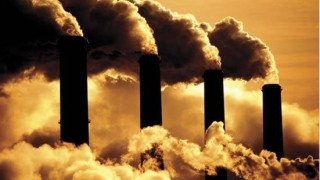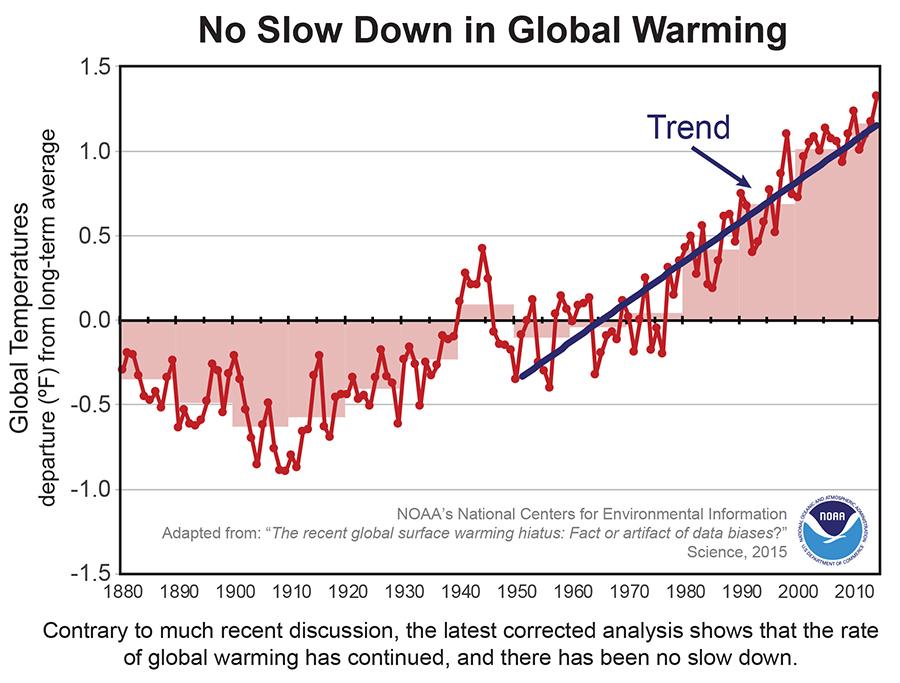
New research, conducted by scientists with the National Oceanic and Atmospheric Administration (NOAA), has led to serious questions over whether the recent global warming hiatus is real. For many years, so-called “skeptics” have consistently referred to a brief pause in global warming to support their arguments - a discrepancy that some “warmists” put down to changes in the El Nino and La Nina cycles, while others suspected the Atlantic and Pacific oceans were, in essence, mopping up the heat. Based on the team’s latest research efforts, study co-author Russell Vose states, “We don’t see a hiatus in the new data.”
The new study looked at more accurate surface temperature measurements, finding there to be a 0.113 degrees Celsius temperature increase, per decade, between 1950 and 1999. From 2000 to 2014, this figure was 0.166 degrees Celsius. When using a “start date” of 1998 - one of the warmest years of recent times - the scientists still identified a 0.106 degrees Celsius temperature increase, per decade.
At the beginning of 2015, NASA and the NOAA claimed that 2014 was the hottest year on record, since 1880. At the time, climate change researchers suggested the pause in global warming was merely a brief blip in the temps, stressing that their predictions were accurate.
According to Boyin Huang, over time, methods of measuring global temperatures have altered radically. “We know that the raw temperature records contain various inconsistencies over the long time history,” stated Huang. With each passing decade, collection methods have been refined and improved. Taking this information into account, and using sophisticated mathematical models to analyze the data with “homogenization methods,” the NOAA researchers refute previous claims of a global warming slow down.
“The notion of a warming hiatus on the most recent decades, as defined by the [IPCC report], is no longer valid,” concluded co-author Huai-Min Zhang. “The global warming rate has been just as fast over the last 15 years as over the previous 50 years.”
The study, entitled Possible artifacts of data biases in the recent global surface warming hiatus, was published in the June 4 issue of the journal Science.

